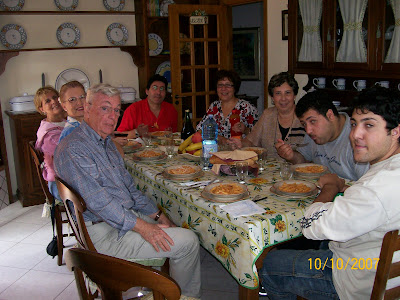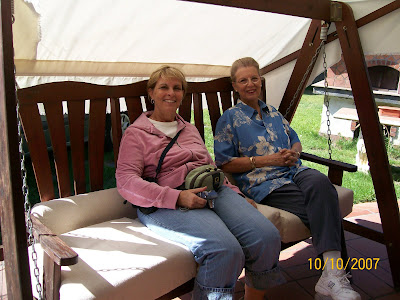Our hanai family in Sicily
My parents from Hawaii were very eager to meet our hanai family in Sicily. Hanai (han-eye) is a Hawaiian concept of adoption and extended family. In the Hawaii community, if someone cannot raise a child, it's very acceptable and welcomed to have an aunt/uncle, grandparent or family friend raise them. It's a term used to express extended family.
Growing up in Hawaii so far away from my parent's blood relatives in the midwest and east coast, I have several hanai relatives in Hawaii--my parent's close friends who I've always called auntie or uncle.
Rose and Mary are our hanai aunties in Sicily. And my parents were so delighted to meet them as they have welcomed us to their family in so many ways!

Both Mary and Rose speak fluent English with a thick Massachusetts accent, and are in somewhat of a cultural chasm in which they are not completely Sicilian but not American either.
By 1978, 5.3 million Italians had immigrated to the U.S. - most from southern Italy and Sicily, escaping famine and poverty.
In the 1950s, my landlord's mother and father were two of these. And they settled in Lawrence where Mary and Rose were born. Their mother labored in the textile mills, often holding two jobs. And their father, a talented furniture maker in Pedara, worked as a carpenter. The Rapisarda family lived in the Sicilian neighborhood of Lawrence, the girls were raised in Sicilian traditions and spoke a little Sicilian at home.

We often ask Sicilians on base where they learned to speak English so well and it's surprising how many are from Lawrence.
Lawrence's claim to fame is its 1912 Bread and Roses strike, prompted by one mill owner's decision to lower wages when a new law shortened the work week (from 56 to 54 hrs a week for children and women). The 2-month strike grew to more than 20,000 workers. It made history as the first and most effective labor strike led mostly by immigrant women.

One in four Italian immigrants eventually returned home - as did teenagers Rose and Mary with their parents when their mother fell ill, and Sicily offered a supportive network of family to help.
If they at all felt like ethnic Sicilians in America, they really struggled as teenage Americans in Sicily (considered 50 years behind the US) in the 70s in a land absent of cow's milk, ketchup, malt shakes, burgers and English.

But as you can see...they've done just fine without America. And are always happy to share Sicily's love of food and friendship with their hanai family.

0 Comments:
Post a Comment
<< Home